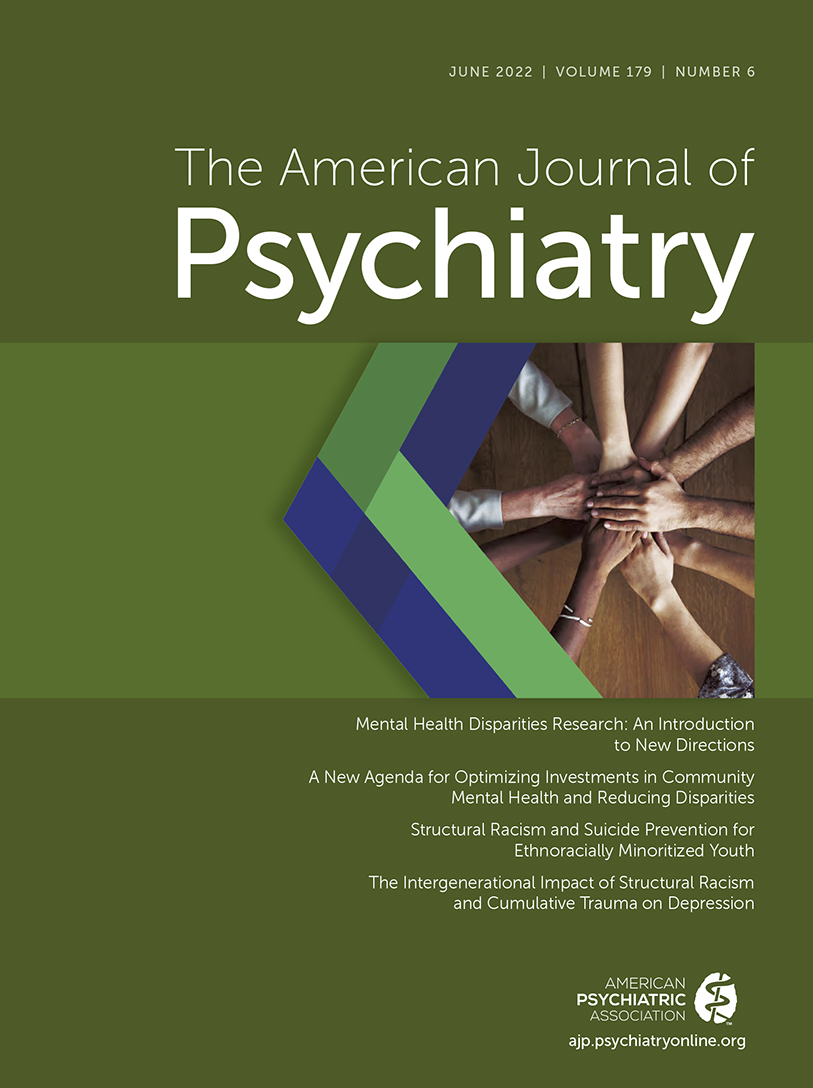The Intergenerational Impact of Structural Racism and Cumulative Trauma on Depression
Abstract
Depression among individuals who have been racially and ethnically minoritized in the United States can be vastly different from that of non-Hispanic White Americans. For example, African American adults who have depression rate their symptoms as more severe, have a longer course of illness, and experience more depression-associated disability. The purpose of this review was to conceptualize how structural racism and cumulative trauma can be fundamental drivers of the intergenerational transmission of depression. The authors propose that understanding risk factors for depression, particularly its intergenerational reach, requires accounting for structural racism. In light of the profoundly different experiences of African Americans who experience depression (i.e., a more persistent course of illness and greater disability), it is critical to examine whether an emerging explanation for some of these differences is the intergenerational transmission of this disorder due to structural racism.



